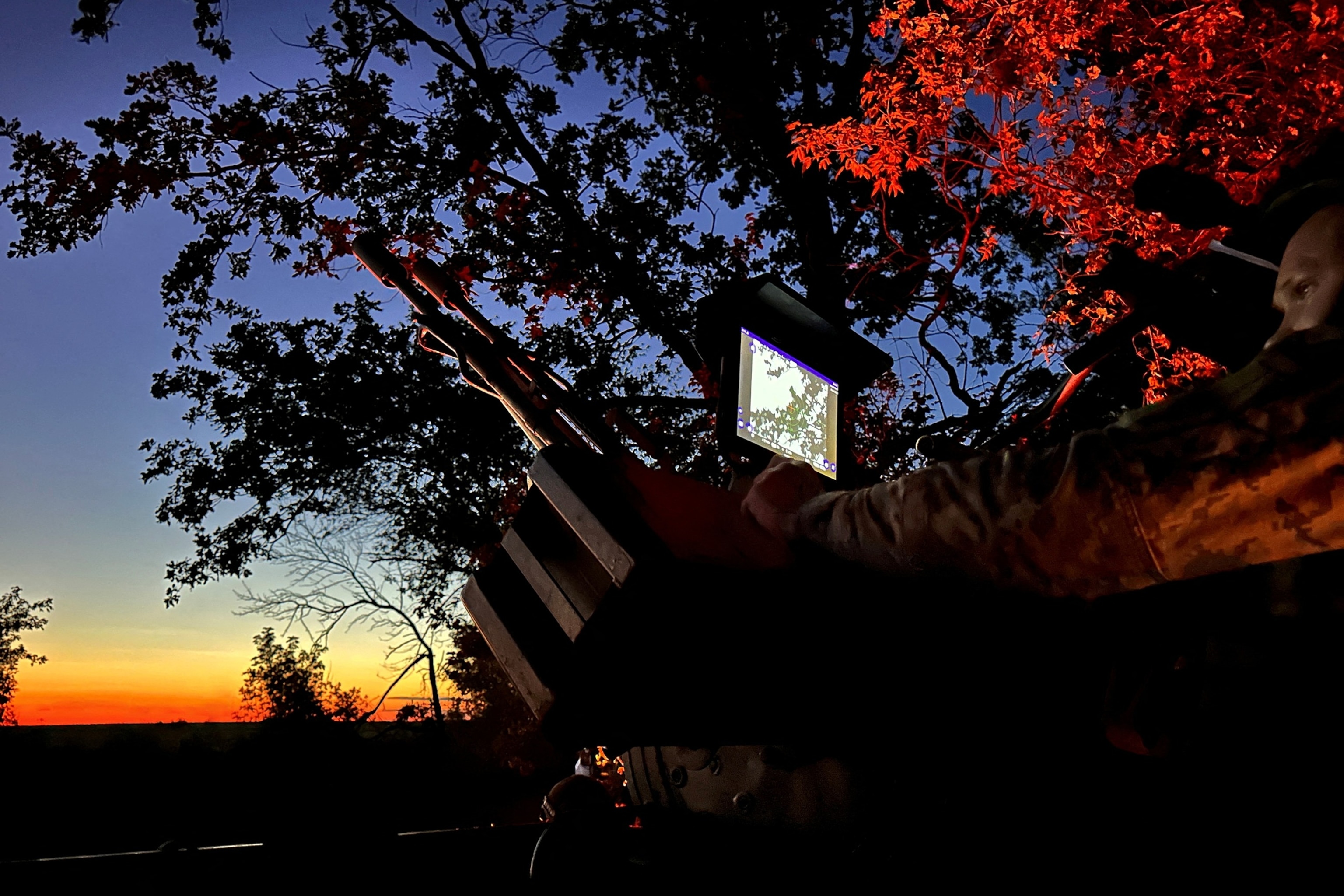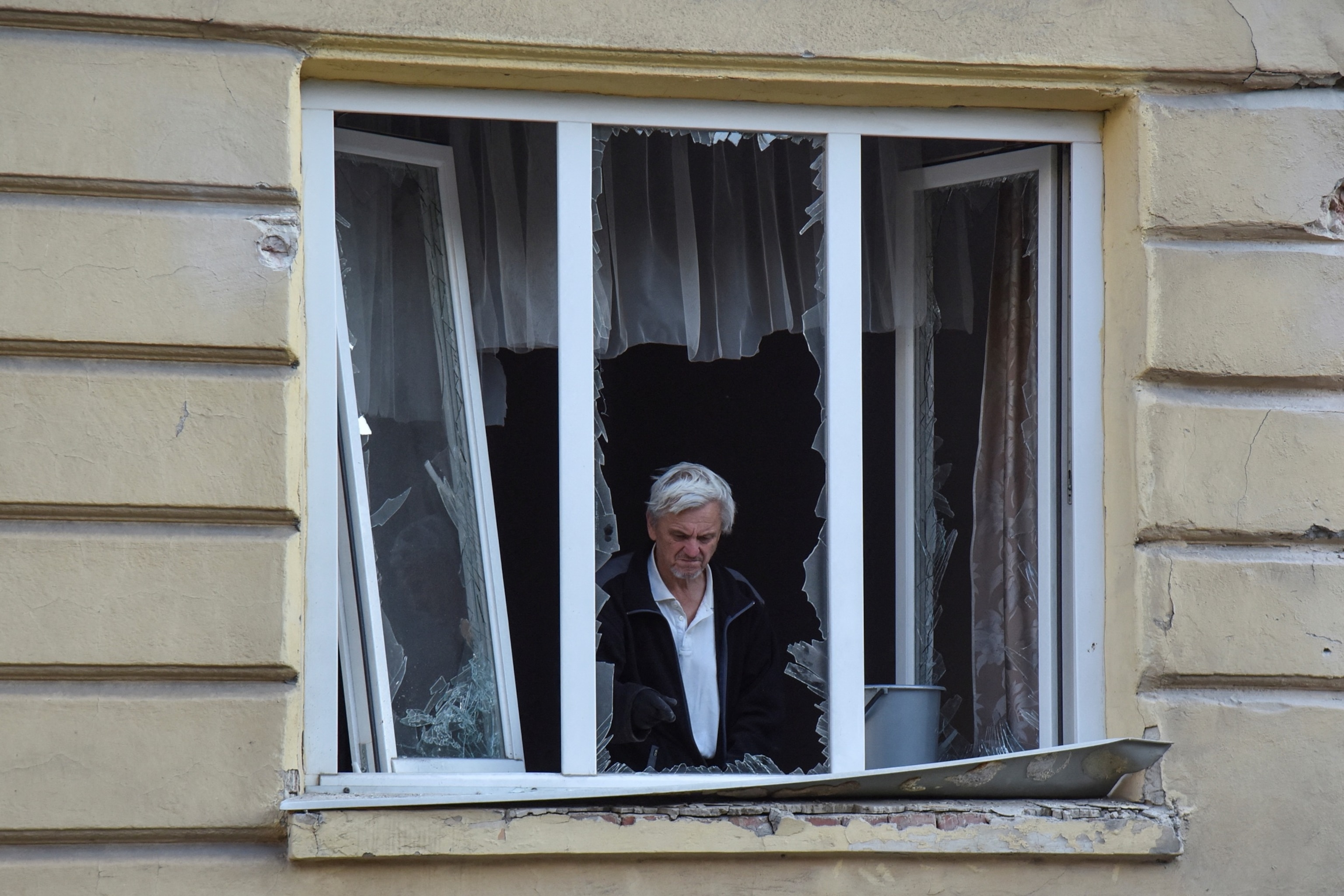Why Trump's 50-day window may pose danger for Ukraine

LONDON -- This week marked a possible pivot by President Donald Trump regarding Russia's ongoing full-scale invasion of Ukraine, with his Monday announcement of a "really big" deal to provide Kyiv with new weapons and threats to impose further sanctions on Russia if it fails to agree a ceasefire within 50 days.
Though Trump's decision was welcomed by leaders in Kyiv, Ukrainians and their supporters abroad also raised concerns that the 50-day window may offer Russian President Vladimir Putin an opportunity to intensify his long-range strikes against Ukrainian cities and ongoing summer frontline offensive.
Oleksandr Merezhko, a member of the Ukrainian parliament representing Zelenskyy's party and the chair of the body's foreign affairs committee, told ABC News he was "cautiously optimistic," hoping Trump's announcement may signal a new "maximum pressure" campaign on Putin.
"However, the 50-day deadline is of some concern, because Putin might take it as a green light to intensify offensive operations," he said.
The Russian attacks over the two nights since Trump's announcement suggest Moscow remains unmoved.

Monday night and Tuesday night saw a cumulative 667 attack and decoy drones of various types, plus one missile, launched into Ukraine by Russia, according to figures published by the Ukrainian air force and analyzed by ABC News.
The previous 50 days before Trump's announcement saw a total of 9,618 drones and 349 missiles launched into Ukraine -- an average of around 192 drones and seven missiles each day.
The pattern of Russian long-range strikes suggest the next 50 days might be even more difficult for Ukrainians. Since May, the scale of Russian attacks has been steadily increasing despite Trump's efforts to force a ceasefire and eventual peace deal.
In May, Russia launched a total of 3,835 drones and 117 missiles, for an average of around 124 drones and nearly four missiles each day.
June saw 5,438 drones and 239 missiles fired into Ukraine, with a daily average of 181 drones and nearly eight missiles.
Already in the first half of July, Ukraine has reported facing 4,003 drones and 89 missiles, for a daily average of 250 drones and more than five missiles.
"Russia is not changing its strategy," Zelenskyy wrote on Telegram after Tuesday night's attacks, in which the president said at least 16 people were injured.
"To effectively counter this terror, we need a systematic strengthening of defense: more air defense, more interceptors, more determination so that Russia feels our response," he added.
Ukraine says many of those Russian drones have been aimed at non-military targets, including residential areas and city centers across Ukraine. Russia has maintained that it targets military and infrastructure sites.
Trump defended his decision to give Moscow 50 days to act, telling reporters at the White House on Tuesday, "I don't think it's a long time. I think really the question should be asked, why did [former President Joe] Biden get us into that ridiculous war? Why did Biden bring us there?"

Asked why he believes Putin's opinion will change in 50 days, Trump said, "a lot of opinions change very rapidly." He added, "It might not be 50 days, he might be much sooner than 50 days."
But Russian officials gave a cold response to Trump's announcement on Tuesday.
Kremlin spokesperson Dmitry Peskov said Trump's "statements are very serious," telling reporters at a daily briefing, "Some of them are addressed personally to President Putin. We definitely need time to analyze what was said in Washington."
Deputy Foreign Minister Sergei Ryabkov, meanwhile, told the state-run Tass news agency that making any demands of Russia is "unacceptable," and that the Kremlin's position is "unshakable."
Russian Foreign Minister Sergei Lavrov suggested that Trump is "under enormous, frankly indecent pressure from the EU and NATO's current leadership."
Responding directly to Trump's timeline, Lavrov said Moscow wants "to understand what this 50-day reference means. There were earlier mentions of 24 hours, then 100 days. We've seen this pattern before and genuinely want to comprehend the U.S. president's reasoning."
As to the threat of new tariffs or sanctions, the foreign minister said, "We're already dealing with an unprecedented number of sanctions and managing well. I have no doubt we'll handle these new measures too."
Perhaps most forthright was Dmitry Medvedev -- the former Russian president and prime minister now serving as the deputy chairman of the country's Security Council -- who wrote on social media that the Kremlin was unmoved by Trump's "theatrical ultimatum."
"The world shuddered, expecting the consequences," wrote Medvedev, who, during Moscow's full-scale war on Ukraine, has become known as a particularly hawkish voice within Putin's security establishment. "Belligerent Europe was disappointed. Russia didn't care."
ABC News' Hannah Demissie contributed to this report.
ABC News




